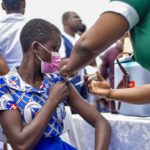It’s been more than a week since Somtochukwu Maduagwu, a 29-year-old ARISE News correspondent, died after reportedly jumping from her apartment window to escape a robbery attack.
According to colleagues, the deceased had been denied immediate hospital attention for her lack of identification. “She did not die on the spot,” anchor Ojy Okpe stressed during an episode of The Morning Show.
Maduagwu’s story is an all-too-familiar tragedy in Nigeria’s broken healthcare system. Many wonder why hospitals still reject emergency patients despite existing laws.
A law ignored
In 2014, Nigeria’s National Health Act, or NHA established a clear right to emergency medical treatment for all individuals. Section 20 of the Act states:
“No healthcare provider, health worker, nor health facility should refuse an individual emergency health care for whatever reason.”
Violators can face fines, licence suspension, or even imprisonment. Yet, nearly a decade later, enforcement remains weak, and tragedies like Maduagwu’s continue.
In one reported case, a woman attacked by criminals in Abuja was turned away from the Maitama Hospital after she failed to present a police report, a tragic reflection of how bureaucracy continues to stand between victims and life-saving care.
Most of these cases involving crash victims or gunshot patients refused treatment for failure to provide a police report, a residue of pre-independence era policy, which, despite being outlawed by the Compulsory Treatment and Care for Victims of Gunshot Act (2017), is still a policy at several hospitals.
One Abuja-based doctor who asked not to be named explained:
“Many hospitals fear police harassment, even though the law says we must treat them first, staff are still scared that if a patient dies, they’ll be blamed for not having clearance which often results in delay, and sometimes death.”
Why hospitals still refuse patients
Apart from fear of legal backlash, the crisis runs deeper, rooted in systemic underfunding, inadequate staff training and lack of accountability.
Nigeria allocates 5% of its national budget to health, far below the 15% Abuja Declaration target agreed upon by African leaders in 2001.
As a result, most of Nigeria’s public hospitals are ill-equipped, fraught with poor emergency facilities, demoralised staff and substandard amenities.
This fact implies even if there are laws, hospitals may not have the capacity nor willingness to adhere. Research across Nigeria’s tertiary hospitals reveals a critical shortage of bed spaces, with the country averaging just 0.9 hospital beds per 1,000 people, far below the global average of 2.3.
This gap not only limits patient admission capacity but also worsens delays in emergency care, as many hospitals struggle to find space for critically injured or ill patients.
A fatal delay
In minutes after a major injury, doctors refer to it as a “golden hour”—a fleeting window during which timely treatment may mean the difference between life and death.
The FRSC reported 5,081 road deaths in 2023 and 5,421 in 2024, and research consistently links delays in pre-hospital care to higher mortality among trauma victims — reinforcing the need for faster emergency response and better hospital access.
“We end up spending more time arguing at the hospital gate than trying to save the patient. You’d hear, ‘No, we cannot accept them without ID,’ or, ‘Go to the another hospital.’ And meanwhile, the patient is bleeding out in the car,” says a nurse at a private hospital in Garki.
Somtochukwu’s demise triggered renewed debates for tougher enforcement of the law.
Some states and institutions, however, are spearheading change.
The Lagos State University Teaching Hospital (LASUTH) has a policy of treating emergency patients without collecting money for the first 24 hours.
The hospital has also emphasised that it does not turn away emergency patients. When there are no bed spaces, first aid or stabilisation is done before referring patients.
In Edo State, similarly, progress is apparent. Through a partnership between the state government and Emergency Response Africa, a network of community-based first responders has been trained and equipped to deliver first aid before ambulances arrive.
Using a mobile app and hotline system, these volunteers are dispatched within minutes to stabilise patients, turning bystanders into lifesavers and reducing the deadly delays that often occur before hospital admission.
Organisations like the Health Emergency Initiative (HEI) are also filling voids by settling emergency deposits for poor patients in Abuja and Lagos. The group says it has provided medical assistance to over 38,700 patients since 2015 through rapid financial support.
Lessons of Africa’s experience
Nigeria is not alone in this struggle. Across Africa, the right to emergency treatment remains weak, but some nations are setting new trajectories.
In South Africa, The Human Rights Commission (SAHRC) has condemned reports that some foreign nationals are being denied access to healthcare in public hospitals and clinics due to lack of documentation.
The commission stressed that such actions violate the country’s constitution and undermine the core human rights values South Africa upholds, reaffirming that no individual should be refused medical care on the basis of identity or legal status.
In Kenya, At Kenyatta National Hospital, there are formal complaint channels, including public relations offices and online reporting systems for patients and relatives to raise grievances about delayed or rejected care.
The way forward
Nigeria must move beyond rhetoric and turn its health policies into action.
A key step is the strict enforcement of Section 20 of the National Health Act, which guarantees emergency medical treatment to all.
That means lining out the consequences for hospitals or health workers who deny care and ensuring that enforcement is transparent, fair, and consistent.
Equally important is mass awareness, among hospital staff and the public, about patient’s rights to emergency care.
The majority of citizens are not aware that the law is on their side, but some medical facilities still prioritize administrative requirements or payment over saving lives. Filling this knowledge gap could be a question of life and death.
There is also a need for specific funding for emergency departments so that they are well-staffed, equipped, and stocked.
But even more profoundly, this change demands a cultural shift, from bureaucracy to compassion, where saving a life is the absolute duty, not a discretionary act of kindness.
A few weeks before her demise, Maduagwu shared a tweet on X, which reads, “I pray from the depth of my heart that Nigeria never happens to me or anyone I care about.”
Her words now echo as both a warning and a call.
Summary not available at this time.






